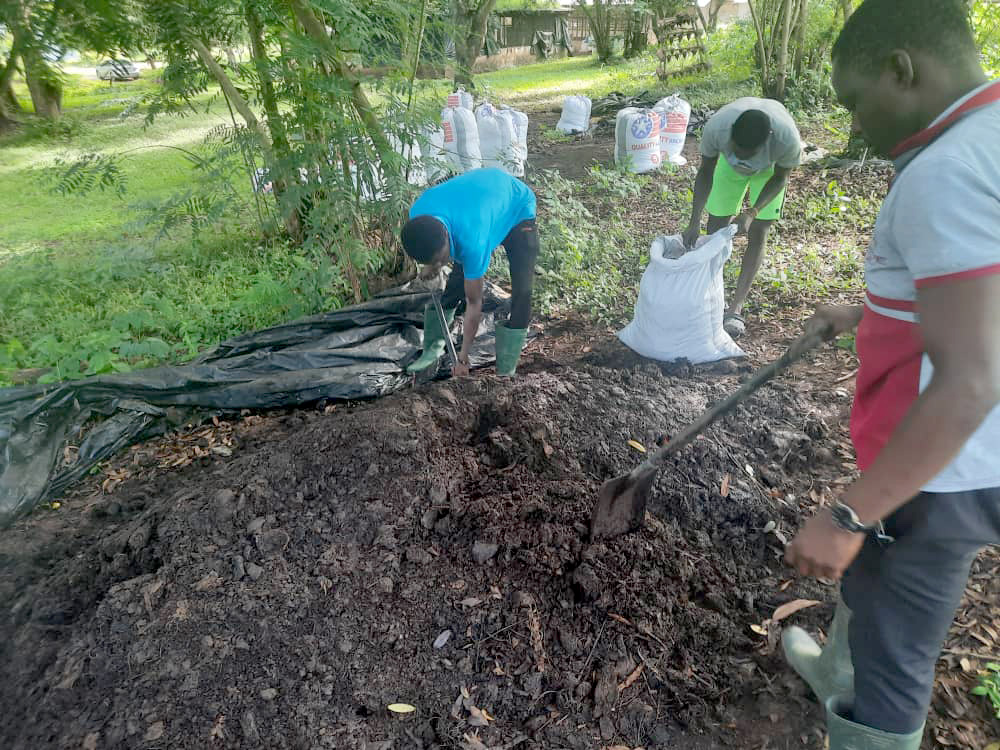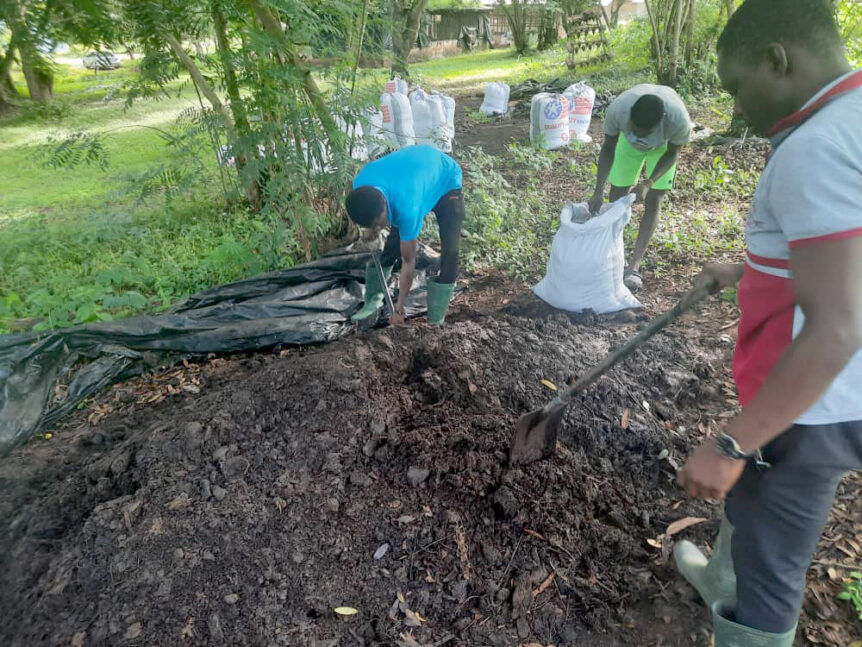How Biochar Co-Compost Can Transform Your Farm
As farmers, the health of our soils is very critical to our success. Regarding pineapple cultivation, achieving a perfect balance among soil nutrients, soil moisture, and soil structure is a constant challenge. What if there was a sustainable, cost-effective way to rejuvenate your soil, increase yields, and secure long-term productivity? Biochar co-compost is an innovative soil amendment that combines the agronomic benefits of compost with the unique properties of biochar, such as its high surface area and porosity, to significantly enhance soil health. The innovative biochar compost solution not only improve soil health; it also transforms the farm into a more productive and sustainable enterprise.
Here’s how biochar co-compost can work for you.
Understanding Biochar Co-Compost: A Perfect Blend for Better Soil
What is Biochar?
Biochar is a carbon-rich material made by heating organic materials such as crop residues or wood, in a no or low-oxygen environment. This process, known as pyrolysis, results in a lightweight, porous substance that acts like a sponge in the soil, retaining water and nutrients.
What is Composting?
Composting involves the breaking down of organic materials, such as food scraps, yard waste, and manure, into nutrient-rich soil amendments through natural decomposition. This biological process relies on micro-organisms, such as bacteria and fungi, as well as macro-organisms like earthworms, to convert organic waste into humus-like material called compost.
What is Co-Composting?
Co-composting involves mixing biochar with organic compost during the composting process. The combination enhances the nutrient content of the compost and supercharges its ability to improve soil health.
Together, biochar and compost create a powerful soil amendment that not only boosts fertility but also supports sustainable farming practices by reducing waste and enhancing carbon storage in the soil.
Why Pineapple Need Biochar Co-Compost
Pineapple and okro are two crops that demand specific soil conditions to thrive.
Pineapples prefer slightly acidic soils with good drainage, but they are heavy feeders, meaning they require rich organic matter to sustain growth.
However, many farmers face declining yields due to soil degradation, nutrient depletion, and the high cost of chemical fertilizers. Biochar co-compost offers a practical solution by:
- Enhancing soil structure: Preventing compaction and improving aeration.
- Retaining moisture: Helping plants survive during dry spells.
- Boosting nutrient availability: Making essential nutrients readily accessible to crops.

Proven Benefits of Biochar Co-Compost in Pineapple Production
1. Improved Soil Fertility
Biochar acts as a reservoir for nutrients, holding onto them and releasing them slowly over time. When combined with compost, it ensures that essential nutrients like nitrogen, phosphorus, and potassium are available to plants throughout their growth cycle.
2. Higher Yields
Farmers using biochar co-compost have reported increased yields for pineapples. The improved nutrient delivery and water retention create ideal growing conditions, leading to healthier plants and better harvests.
3. Cost-Effective and Sustainable
While the initial investment in biochar production or purchase may seem high, the long-term benefits far outweigh the costs. By reducing the need for chemical fertilizers and improving soil longevity, biochar co-compost pays for itself over multiple growing seasons.
4. Environmental Impact
Biochar sequesters carbon, helping to combat climate change. By incorporating biochar into your farming practices, you contribute to a greener planet while improving your farm’s productivity.
How to Get Started with Biochar Co-Compost
Adopting biochar co-compost on your farm doesn’t have to be complicated. Here’s a simple guide to get you started:
1. Making or Sourcing Biochar
- If you have access to crop residues, coconut husks, wood chips, or other organic waste, you can produce your own biochar using a pyrolysis kiln.
- Alternatively, biochar is available from agricultural suppliers specializing in soil amendments.
2. Mixing Biochar with Compost
- Combine biochar with compost in a 1:3 ratio (one-part biochar to three parts compost).
- Allow the mixture to mature for a few weeks (4-8weeks) to ensure the biochar absorbs nutrients from the compost.
3. Applying to Your Fields
For pineapples, apply biochar co-compost to planting holes or rows before transplanting suckers.
Monitor and Adjust
- Test your soil periodically to track improvements and make adjustments as needed.
- Over time, you’ll notice better soil structure, healthier plants, and increased yields.


Real Stories from Farmers Who Made the Switch
Take the example of Kwame, a smallholder farmer in Ghana’s Central Region. Facing declining pineapple yields due to poor soil fertility, Kwame decided to experiment with biochar co-compost on a small portion of his farm.
The results were transformative. After one growing season, Kwame observed healthier pineapple plants with larger, sweeter fruits. Encouraged by the success, he expanded the use of biochar co-compost across his entire farm and now enjoys consistent yields while spending less on chemical inputs.
Stories like Kwame’s demonstrate the real potential of biochar co-compost to change the trajectory of small-scale farming.
Why You Should Act Now
The benefits of biochar co-compost are clear: better yields, healthier soils, and a more sustainable future for your farm. However, the time to act is now. As soil degradation and climate challenges continue to threaten agriculture, adopting innovative practices like biochar co-compost is no longer optional—it’s essential.
Yes, the transition requires effort, but the rewards far exceed the initial investment. Imagine a future where your farm produces abundant, high-quality pineapples while preserving the land for generations to come.
Conclusion: Take the First Step Toward a Brighter Farming Future
Biochar co-compost isn’t just a soil amendment; it’s a farming revolution. By integrating this powerful solution into your practices, you are not only enhancing your productivity but also contributing to sustainable agriculture and environmental stewardship.
So, why wait? Start a small experiment with a portion of your farm, and see the difference for yourself. The journey to better farming begins with a single step—and biochar co-compost is the step you have been waiting for.
Call to Action:
Interested in learning more? Reach out to your local agricultural extension office or attend a workshop on biochar co-composting. Together, let’s build a future of thriving farms and sustainable practices!

